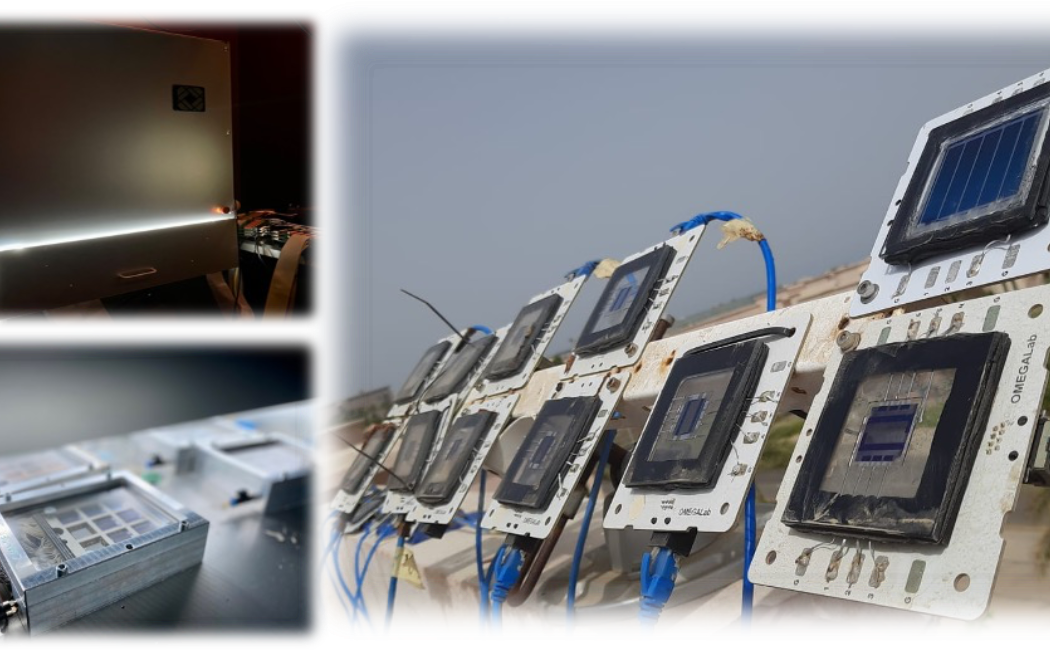
PI: Prof. Derya Baran, Prof. Stefaan De Wolf, Prof. Frederic Laquai, Prof. Shadi Fatayer
Solution-processed photovoltaics is a promising renewable energy technology with untapped potential. Record power-conversion efficiencies for organic and perovskite-based solar cells are rapidly approaching their theoretical limits. These improvements promise the application and commercialization of solution-processed photovoltaics if, in addition to the power conversion efficiency, the stability of the devices could be increased. However, device stability has only recently drawn increased research attention as a central pillar of photovoltaics research towards the large-scale manufacturing of such devices. This has led to the considerable effort to understand the degradation mechanisms in operational devices, though tackling such degradation pathways is still a challenge.
This project aims to focus on identifying and eliminating the sources of device degradation in photovoltaic devices, which is as crucial as improving the power conversion efficiency to make this technology commercially viable. Several KSC research groups provide collective effort aimed at achieving the goals of this project. Specifically, this involves conducting a comprehensive study of single and multi-junction devices’ stability in controlled laboratory and ambient outdoor environments to elucidate different degradation pathways. Additionally, advanced spectroscopic, electrical, and in-operando measurements are utilized to disentangle several different degradation mechanisms that the devices undergo during operation. This project further involves the development of novel methods for tackling device degradation. Such strategies would lead to the development of photovoltaic devices with long-term stability, resilience to hot and humid climates, and their ability to also be used as semi-transparent devices for building integration and greenhouse applications.